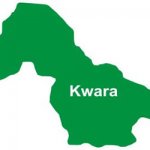Indeed, the only way by which rural participation in governance can be enhanced is through the creation of local councils. These local councils ought to have some degree of autonomy. No wonder then that the 1976 local government reforms recognised the existence of 774 local councils in Nigeria.
The reforms also made provision for local councils as the third tier of government, spelling out how they should enjoy their autonomy. The 1999 Constitution also states that all the 774 local councils should enjoy, to some extent, political and financial autonomy.
Despite the 1976 reforms and the constitutional provisions for local government autonomy, most past administrations in the country did not fully implement autonomy for the local councils.
But the case was different during the General Ibrahim Babangida-led military administration.There was full implementation of local government autonomy, as the monthly revenue from the Federation Account went directly to the local government purse. Local government administrations were run effectively and efficiently. Rural developmental projects were easily carried out.
A critical look at the developed countries would show that they don’t neglect the development of their rural areas while pursuing their national goals of all-round socioeconomic and political development within the framework of federalism.
In my view, no real development can take place until autonomy is fully granted to the councils. If there is an opportunity to review the revenue sharing formula, increasing the percentage of allocated funds to local councils would be good for the country, especially at this period of economic recession.
Adeosun Paul
Lagos






